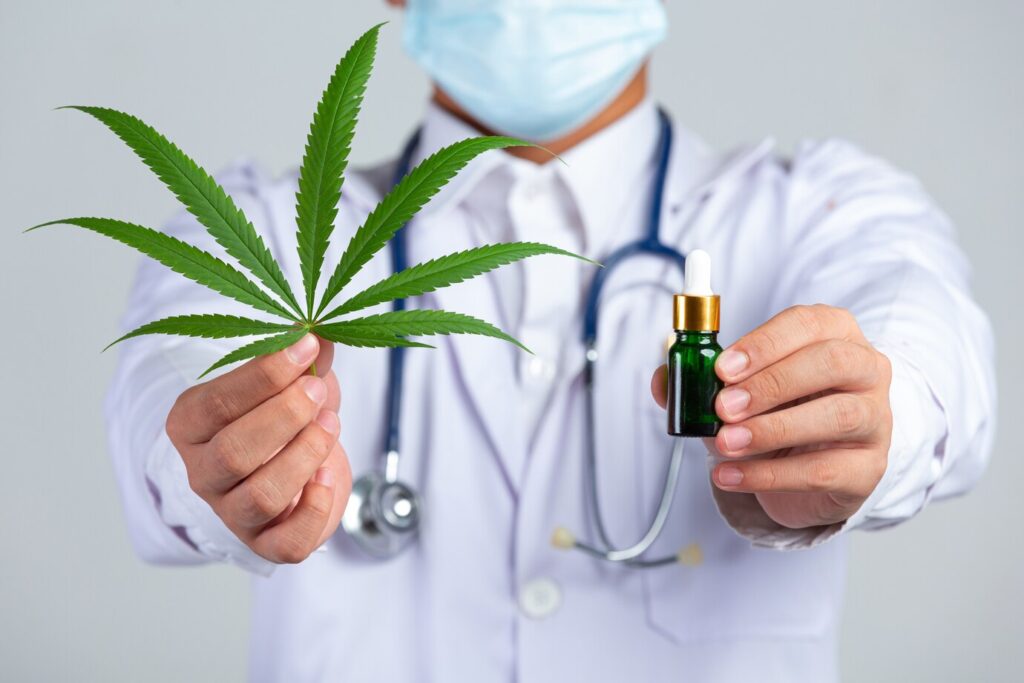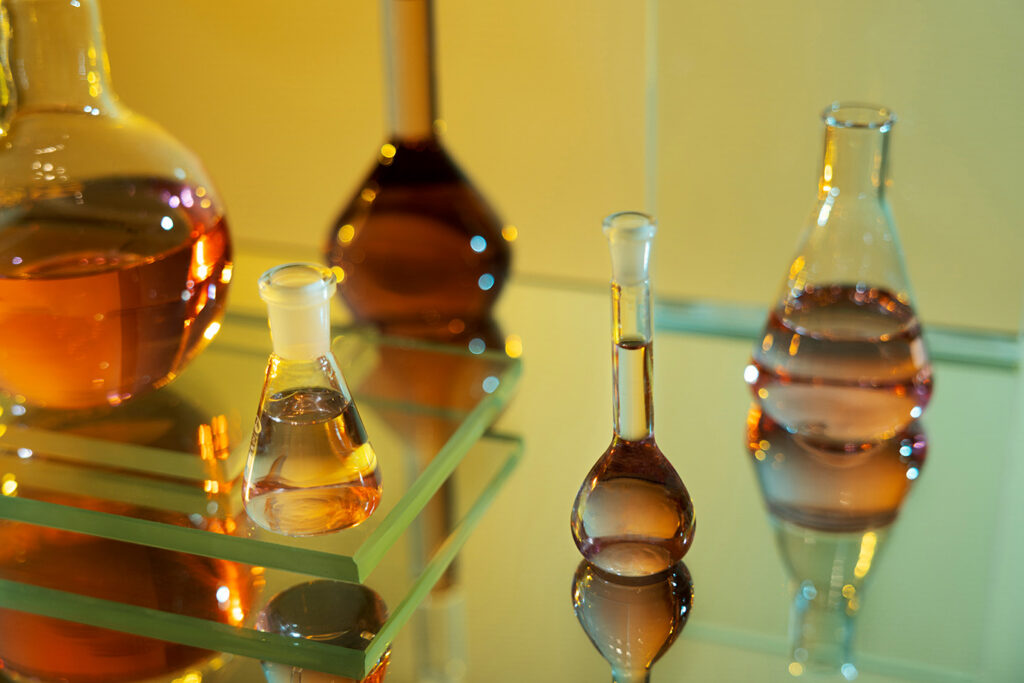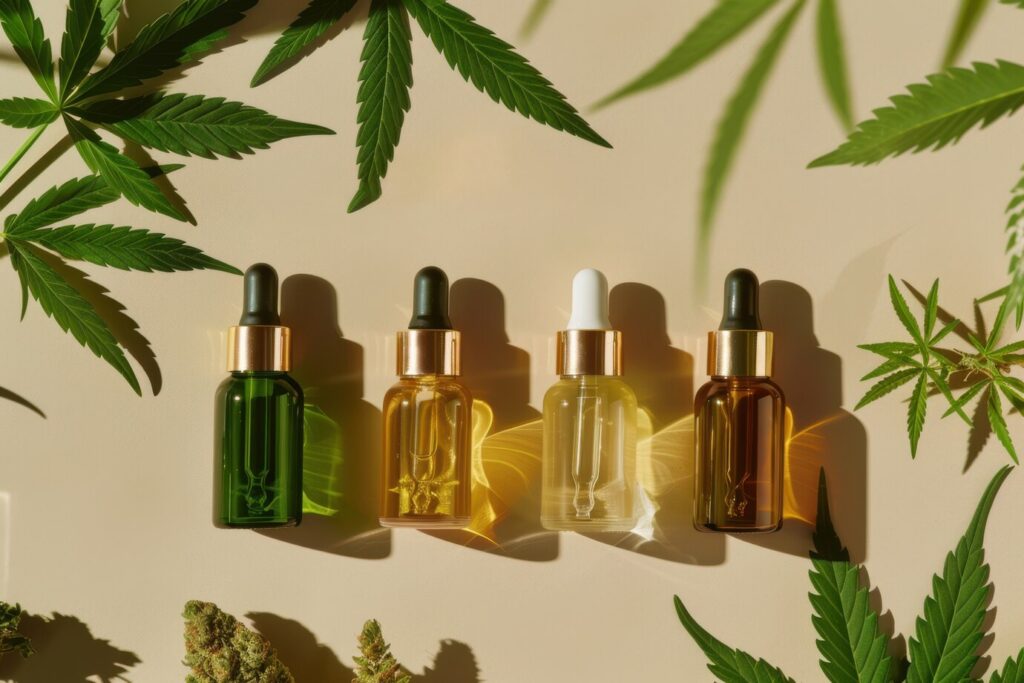Industrial Applications of Medicinal Cannabis: Exploring its Multifaceted Benefits Across Sectors
Medicinal cannabis, particularly its non-psychoactive components like CBD, has emerged as a valuable resource with diverse industrial applications. From pharmaceuticals and cosmetics to food, beverages, and sustainable agriculture, cannabis offers numerous benefits that extend beyond its traditional use as a medicinal product. As research continues to uncover the therapeutic potential of cannabis, its industrial uses are likely to expand further, contributing to the growth of sustainable and health-focused industries. The versatility and environmental benefits of cannabis, especially industrial hemp, position it as a key player in the future of sustainable development and industrial innovation.
Medicinal cannabis has undergone a remarkable transformation from a stigmatized substance to a recognized therapeutic agent with a broad range of applications. As research continues to unveil the therapeutic potential of cannabis, its industrial uses have expanded, impacting various sectors, including pharmaceuticals, cosmetics, food and beverages, and agriculture. This article explores the industrial uses of medicinal cannabis, focusing on its benefits and the growing role it plays in various industries.
The Therapeutic Compounds of Cannabis
Cannabis contains over 100 cannabinoids, with the most studied being tetrahydrocannabinol (THC) and cannabidiol (CBD). These compounds interact with the body’s endocannabinoid system, a network of receptors that play a crucial role in regulating physiological processes such as pain, mood, appetite, and immune response. The therapeutic effects of cannabis are primarily attributed to these interactions, making it a valuable resource for industrial applications.
1. Pharmaceutical Industry
The pharmaceutical industry has been at the forefront of harnessing the medicinal properties of cannabis. The therapeutic potential of cannabinoids has led to the development of a wide range of cannabis-based medicines that are used to treat various conditions.
-
Pain Management:
- Chronic pain is one of the most common conditions treated with medicinal cannabis. Cannabinoids such as THC and CBD have been shown to reduce pain by interacting with the body’s endocannabinoid receptors, which modulate pain perception.
- Cannabis-based medicines like Sativex (a combination of THC and CBD) are used to treat pain associated with multiple sclerosis, arthritis, and cancer.
-
Neurological Disorders:
- Medicinal cannabis has shown promise in treating neurological disorders such as epilepsy, multiple sclerosis, and Parkinson’s disease.
- Epidiolex, a CBD-based medication, has been approved by the FDA for the treatment of rare forms of epilepsy, including Dravet syndrome and Lennox-Gastaut syndrome. Clinical trials have demonstrated that CBD can reduce seizure frequency in these patients, improving their quality of life.
-
Mental Health:
- The anxiolytic and antidepressant properties of cannabinoids are being explored for the treatment of mental health conditions such as anxiety, depression, and post-traumatic stress disorder (PTSD).
- While more research is needed, preliminary studies suggest that CBD may help reduce anxiety and improve mood by influencing serotonin receptors in the brain.
-
Anti-inflammatory and Antioxidant Effects:
- Cannabinoids, particularly CBD, possess anti-inflammatory and antioxidant properties, making them potential treatments for inflammatory diseases such as rheumatoid arthritis, inflammatory bowel disease (IBD), and even certain types of cancer.
- The anti-inflammatory effects of CBD are also being investigated for their potential to reduce neuroinflammation, which is implicated in conditions such as Alzheimer’s disease and other neurodegenerative disorders.
2. Cosmetics and Skincare Industry
The cosmetic and skincare industry has embraced medicinal cannabis for its potential to address various skin conditions and enhance overall skin health. Cannabinoids, particularly CBD, are valued for their anti-inflammatory, antioxidant, and moisturizing properties.
-
Anti-inflammatory Effects:
- Inflammatory skin conditions such as acne, eczema, and psoriasis can benefit from the anti-inflammatory properties of CBD. By reducing inflammation, CBD can help alleviate symptoms such as redness, swelling, and irritation.
- Topical CBD products are increasingly popular for managing localized skin issues without the psychoactive effects associated with THC.
-
Antioxidant Properties:
- The antioxidant properties of CBD help protect the skin from damage caused by free radicals, which contribute to aging and skin deterioration. This has led to the inclusion of CBD in anti-aging products designed to reduce wrinkles, fine lines, and age spots.
- Antioxidants in CBD also support skin repair and regeneration, promoting a healthier and more youthful complexion.
-
Moisturization and Skin Barrier Support:
- CBD has moisturizing properties that help maintain skin hydration and support the skin’s natural barrier function. This is particularly beneficial for individuals with dry or sensitive skin.
- The ability of CBD to balance oil production makes it a suitable ingredient for both dry and oily skin types, contributing to its versatility in skincare formulations.
-
Acne Treatment:
- Acne is often caused by excessive sebum production and inflammation of the sebaceous glands. CBD has been shown to inhibit the production of sebum and reduce inflammation, making it an effective treatment for acne-prone skin.
- CBD’s antimicrobial properties may also play a role in reducing acne-causing bacteria on the skin, further enhancing its effectiveness as an acne treatment.
3. Food and Beverage Industry
The food and beverage industry has seen a surge in the use of medicinal cannabis, particularly CBD, in various products. These cannabis-infused products are marketed for their potential health benefits, including relaxation, pain relief, and improved well-being.
-
Functional Foods and Beverages:
- CBD-infused foods and beverages are marketed as functional products that offer specific health benefits beyond basic nutrition. These products include CBD-infused snacks, drinks, and supplements that are designed to promote relaxation, reduce anxiety, and enhance overall well-being.
- The versatility of CBD allows it to be incorporated into a wide range of products, from gummies and chocolates to coffee and tea.
-
Nutraceuticals:
- Nutraceuticals are products that combine the benefits of nutrition and pharmaceuticals. CBD is increasingly being used in nutraceuticals for its potential to support mental and physical health.
- CBD supplements, including capsules, oils, and tinctures, are popular for their ease of use and ability to deliver precise doses of CBD.
-
Health and Wellness Trends:
- The health and wellness industry has embraced CBD for its perceived benefits, including stress reduction, improved sleep, and pain relief. As consumers seek natural alternatives to traditional pharmaceuticals, CBD-infused products have gained popularity as part of a holistic approach to health.
- CBD’s non-psychoactive nature makes it appealing to a broad audience, including those who are wary of the intoxicating effects of THC.
-
Regulatory Considerations:
- The inclusion of CBD in food and beverages is subject to regulatory scrutiny, particularly regarding safety, labeling, and marketing claims. As the market continues to grow, regulatory bodies are working to establish clear guidelines for the use of CBD in consumable products.
4. Agriculture and Industrial Hemp
Industrial hemp, a variety of Cannabis sativa with low THC content, has long been used for its fibers, seeds, and oils. The legalization of hemp cultivation in many countries has opened new opportunities for its use in various industries, including agriculture.
-
Hemp as a Rotational Crop:
- Hemp is increasingly being used as a rotational crop in agriculture due to its ability to improve soil health. Its deep root system helps break up compacted soil, increasing aeration and water infiltration.
- Hemp also has phytoremediation properties, meaning it can absorb heavy metals and toxins from the soil, making it a valuable crop for restoring contaminated land.
-
Sustainable Agriculture:
- Hemp is a highly sustainable crop that requires fewer pesticides and fertilizers than many other crops. Its rapid growth cycle allows for multiple harvests per year, making it an efficient and environmentally friendly crop.
- The cultivation of hemp can reduce the carbon footprint of agriculture, as it absorbs large amounts of CO2 during its growth cycle.
-
Hemp Products:
- Beyond its medicinal uses, industrial hemp is used to produce a wide range of products, including textiles, paper, bioplastics, and building materials. Hemp fibers are strong, durable, and biodegradable, making them an eco-friendly alternative to synthetic materials.
- Hemp seeds and oils are also valuable as food sources, rich in essential fatty acids, proteins, and vitamins.
-
CBD Extraction from Hemp:
- Hemp is the primary source of CBD for industrial extraction. The CBD extracted from hemp is used in various products, including pharmaceuticals, cosmetics, and food and beverages.
- The low THC content in hemp ensures that CBD products derived from it are non-psychoactive, making them legal and accessible in many regions.
5. Textiles and Bioplastics
Industrial hemp is a versatile crop with applications beyond medicinal cannabis. Its fibers and oils are increasingly used in the production of textiles, bioplastics, and other sustainable materials.
-
Hemp Textiles:
- Hemp fibers are known for their strength, durability, and resistance to mold and mildew. These properties make hemp an ideal material for textiles, including clothing, rope, and upholstery.
- The sustainability of hemp as a textile material is a key selling point, as it requires less water and fewer pesticides than cotton. Hemp fabric is also biodegradable, reducing its environmental impact.
-
Bioplastics:
- Hemp is being explored as a raw material for bioplastics, which are plastics derived from renewable sources. Hemp-based bioplastics are biodegradable and can reduce the environmental footprint of plastic production.
- Applications of hemp bioplastics include packaging, automotive parts, and consumer goods. As the demand for sustainable materials grows, hemp bioplastics are likely to play an increasingly important role in the plastics industry.
-
Construction Materials:
- Hempcrete, a building material made from hemp hurds (the inner woody core of the hemp stalk) and lime, is gaining popularity in the construction industry. Hempcrete is lightweight, breathable, and has excellent thermal insulation properties.
- The use of hemp in construction supports sustainable building practices by reducing the carbon footprint of construction materials and promoting energy efficiency.
6. Environmental Benefits of Hemp Cultivation
The cultivation of industrial hemp offers significant environmental benefits, making it a valuable crop for sustainable agriculture and industrial use.
-
Carbon Sequestration:
- Hemp is a highly efficient carbon sink, meaning it absorbs more CO2 from the atmosphere than it releases during its growth cycle. This makes hemp cultivation an effective way to mitigate climate change by reducing greenhouse gas concentrations in the atmosphere.
- The carbon-sequestering properties of hemp, combined with its ability to grow quickly and with minimal inputs, make it an attractive crop for environmentally conscious farmers.
-
Soil Health and Remediation:
- Hemp’s deep root system helps improve soil structure by breaking up compacted soil and increasing its ability to retain water. This can lead to better crop yields and reduced soil erosion.
- Hemp is also known for its phytoremediation capabilities, meaning it can absorb toxins, heavy metals, and other contaminants from the soil. This makes hemp an effective crop for rehabilitating polluted or degraded land.
-
Biodiversity and Ecosystem Support:
- Hemp cultivation supports biodiversity by providing habitat for various insects, birds, and other wildlife. The crop’s flowers are particularly attractive to pollinators such as bees, which play a crucial role in maintaining healthy ecosystems.
- The use of hemp in crop rotations can also help reduce pest populations and improve overall farm biodiversity, leading to more resilient agricultural systems.
Conclusion
Medicinal cannabis, particularly its non-psychoactive components like CBD, has emerged as a valuable resource with diverse industrial applications. From pharmaceuticals and cosmetics to food, beverages, and sustainable agriculture, cannabis offers numerous benefits that extend beyond its traditional use as a medicinal product. As research continues to uncover the therapeutic potential of cannabis, its industrial uses are likely to expand further, contributing to the growth of sustainable and health-focused industries. The versatility and environmental benefits of cannabis, especially industrial hemp, position it as a key player in the future of sustainable development and industrial innovation.
Contact Us
Have questions or need assistance?
It is a pleasure for us to be able to answer all your concerns and help you in the search for high-quality solutions. Please complete our contact form and our team will contact you as soon as possible.




